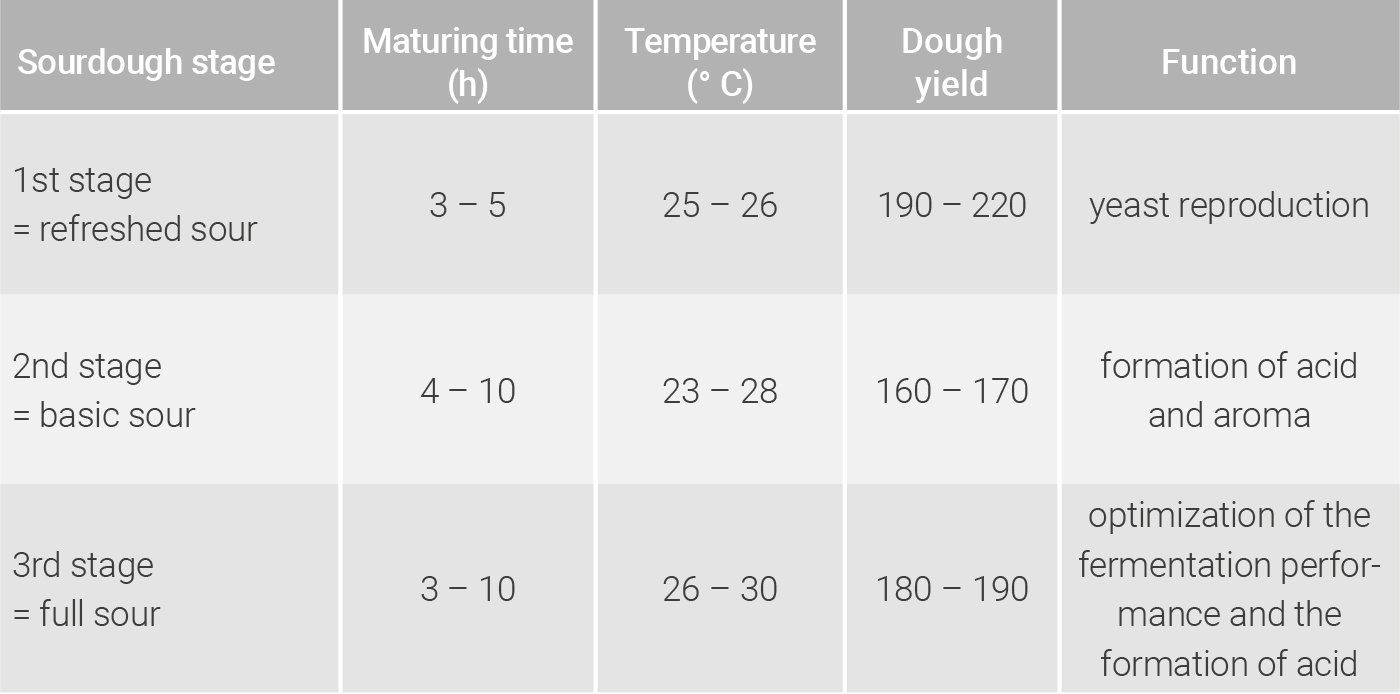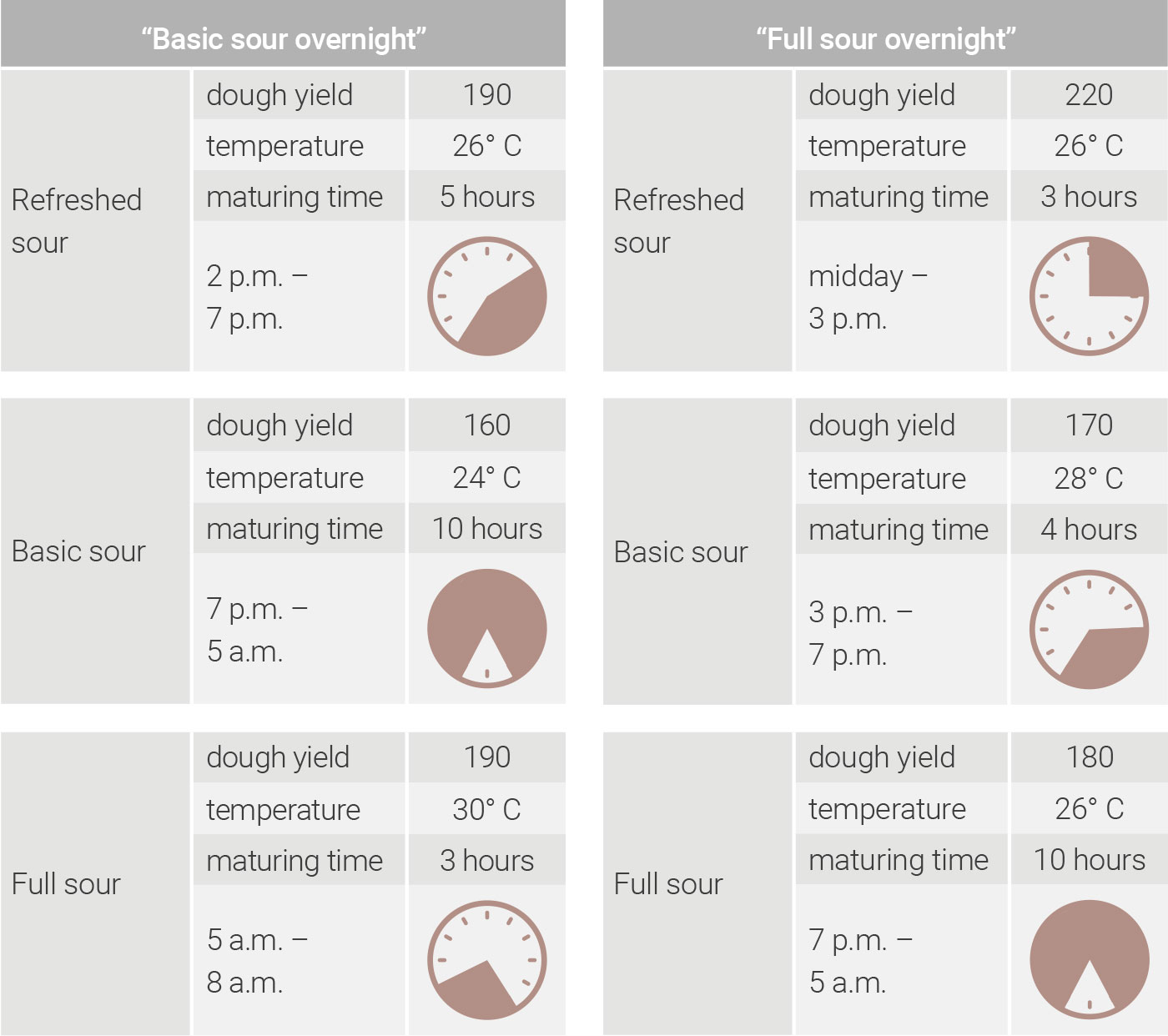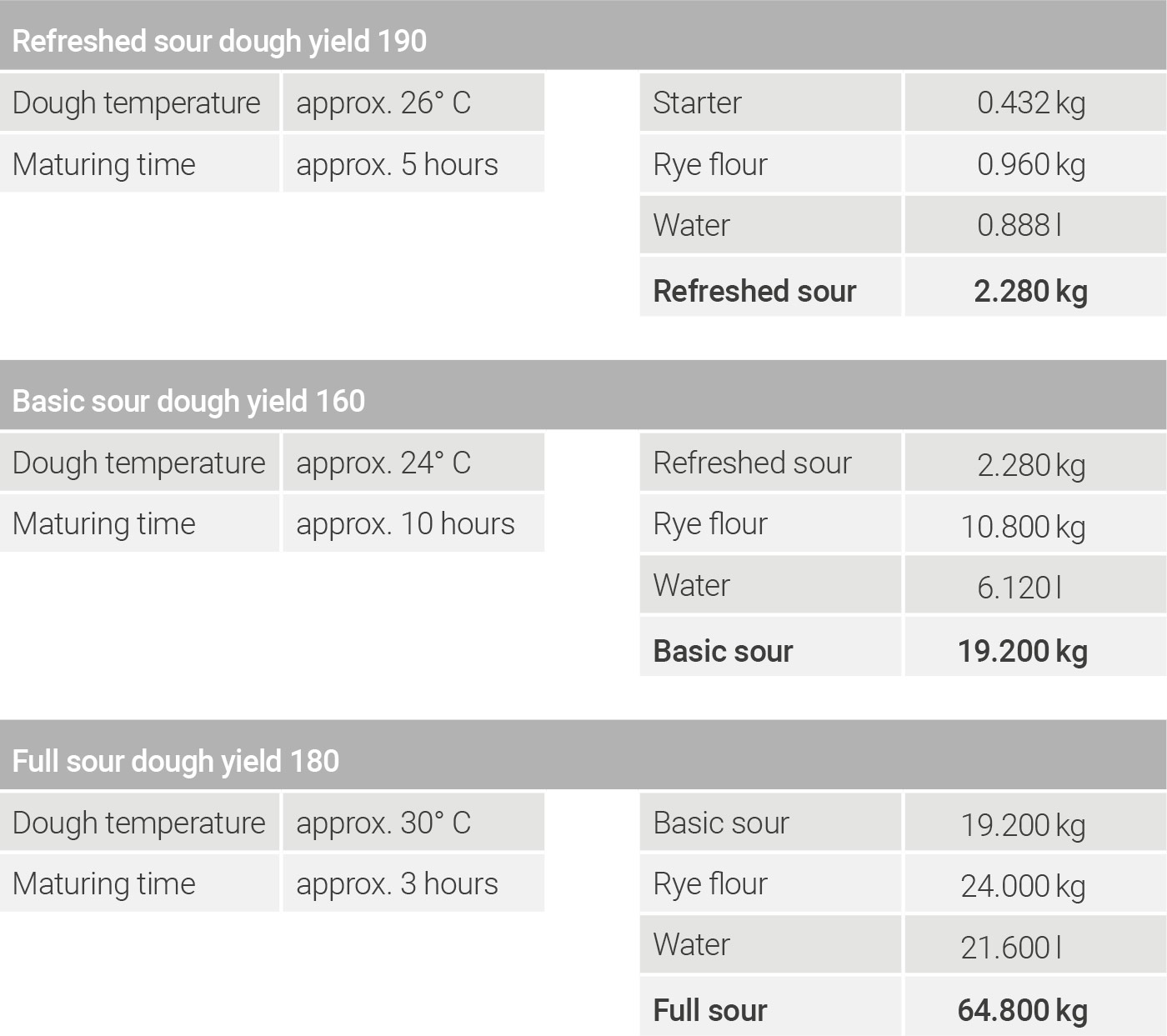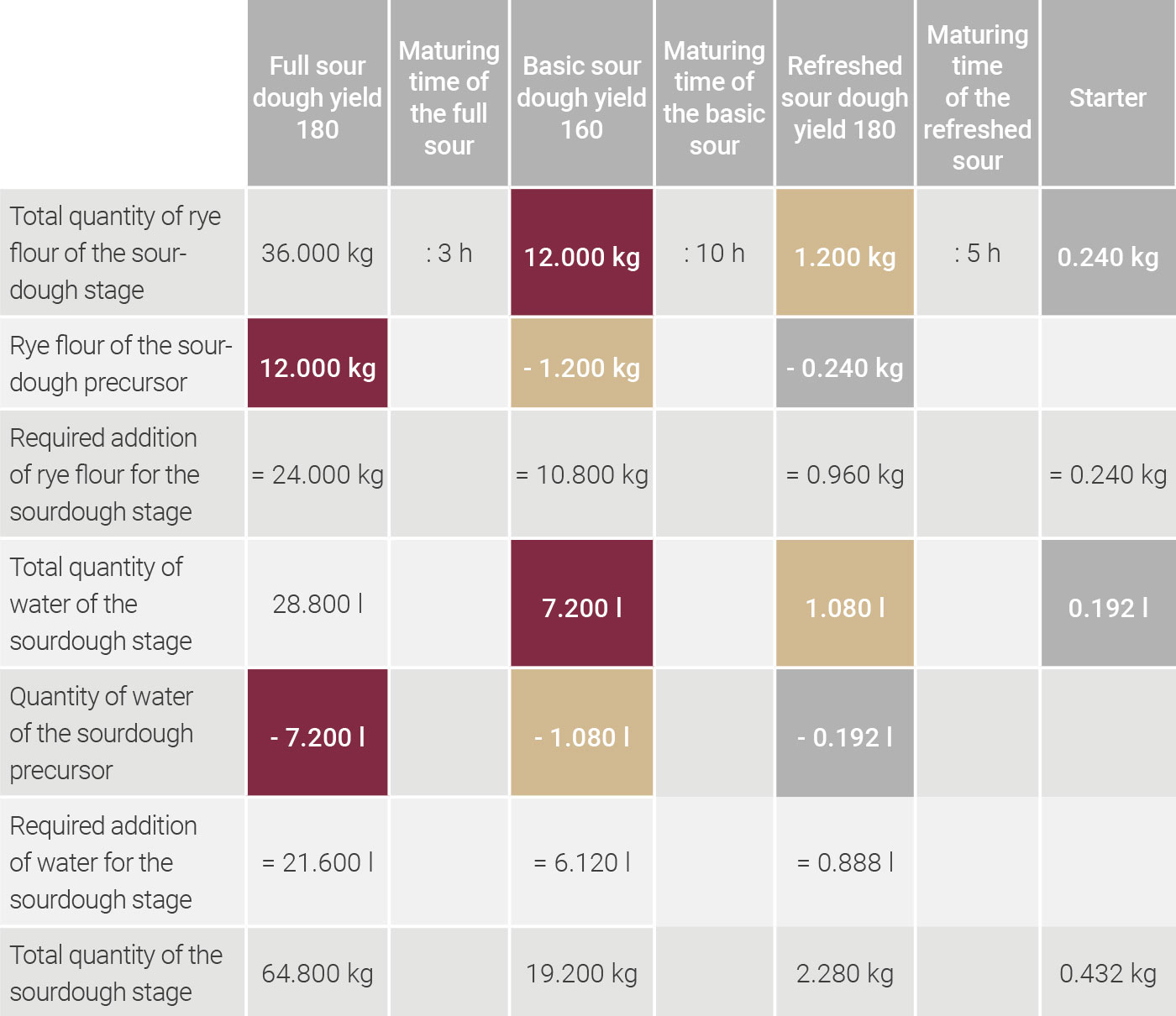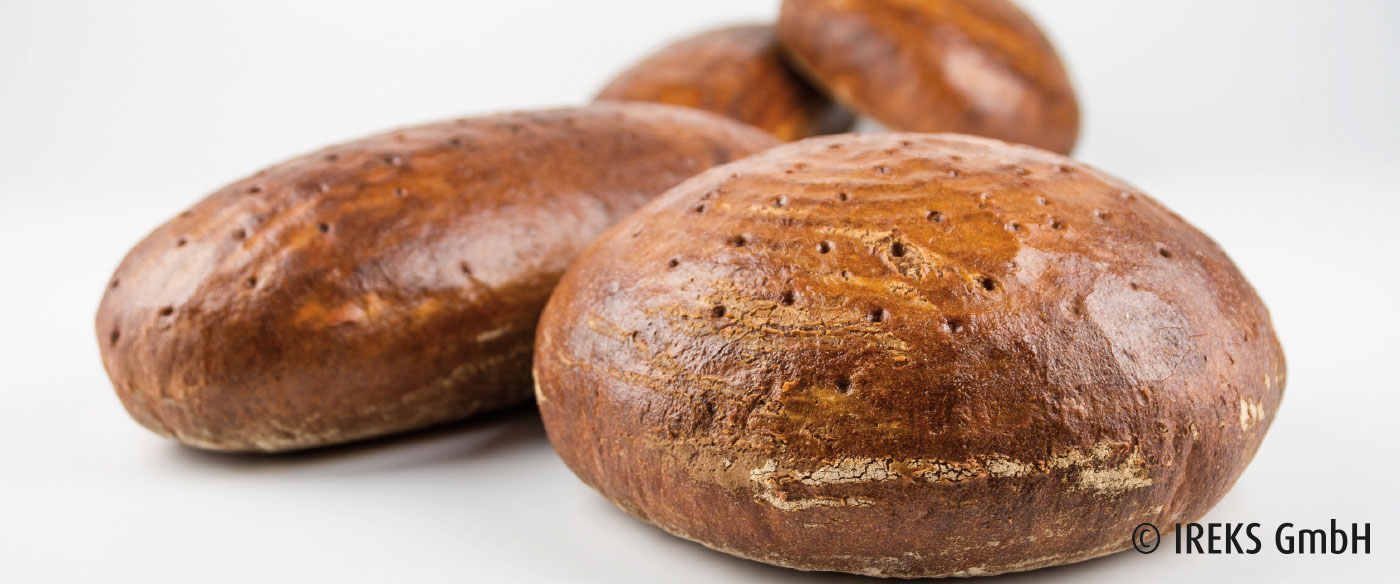In the case of multi-stage sourdough methods, the greatest influence on the dough and the baked goods properties is from the full sour, the final stage of the actual dough preparation. The full sour is very fermentation active and the sourdough micro-organisms are in the so-called “exponential growth phase”. This means that the lactic acid bacteria and the sourdough yeasts reproduce very quickly and the speed of the acidification is correspondingly high, so that the degrees of acidity after the maturing time can still increase considerably. In this way, the full sour of a three-stage dough method has a relatively low processing tolerance.
The quantity of rye flour from the total flour of the bread dough to be acidified is, due to the low degrees of acidity of the full sour, relatively high, whereby the bread freshkeeping and the baked goods aroma turn out very well. The temperature, the dough yield and the maturing time of the individual stages have been adjusted in such a way that, in addition to the lactic acid bacteria, also sourdough yeasts reproduce which contribute significantly to the dough aeration and thus make the production of bread without the addition of yeast possible with the correct sourdough method.
Basically, a distinction is made between two variations of three-stage methods. Should a mature full sour from the three-stage method be available for processing at the start of work, then the “full sour method overnight” with a full sour maturing time of 8 – 10 hours is used. Should this not be necessary, the basic sour is processed overnight and followed by the full sour at the start of work the next morning, becoming available after a maturing time of three hours.
The full sourdough has to be processed relatively soon, as the processing tolerance of the fermentation active full sourdough is very low. The starter for the next sourdough preparation is taken from the mature full sour and stored in the cold store until further processing.
The relevant maturing time of the individual sourdough stages determines the ratio of quantities to one another. The quantity of flour which is to be acidified per sourdough stage can be calculated using the IREKS Multiplication Rule. According to this, the flour quantity of the individual stages is divided by the number of hours of the maturing time of this stage and thus results in the flour quantity of the previous stage.
Example of the calculation of a three-stage method for the production of mixed rye bread 70/30
Acidification takes place using a three-stage method (basic sour overnight). The dough yield of the full sour is 180 and the degree of acidity should be 11 – 13. A recipe with 100 kg total flour is compiled. In the case of a 70/30 mixed rye bread, 70 kg rye flour are available. For a medium acid intensity, it is recommended to acidify approx. 50 % of the rye flour quantity (Brandt & Gänzle 2006).
With 36 kg rye flour to be acidified as a starting point and the details on the maturing time and the dough yield from the “three-stage method with basic sour overnight”, the relevant flour quantity of the individual sourdough stages can be determined via a subsequent calculation with the aid of the IREKS Multiplication Rule. The determination of the quantities of addition required for rye flour and water for the single stages are shown in table 8.8 and 8.9.

